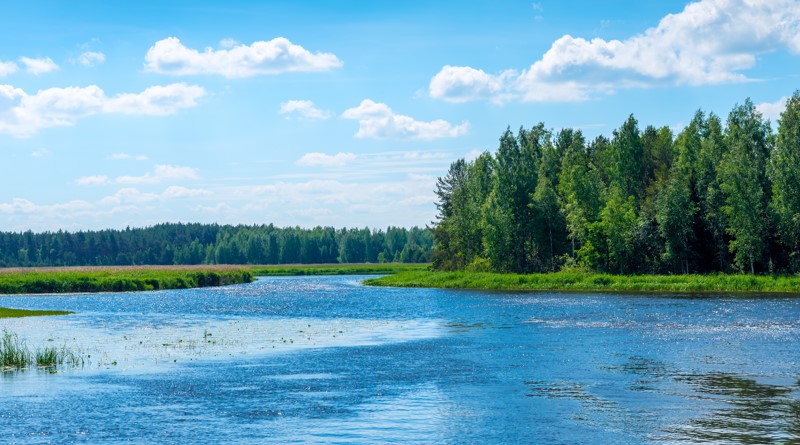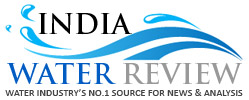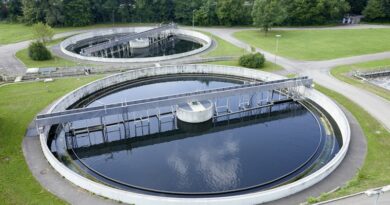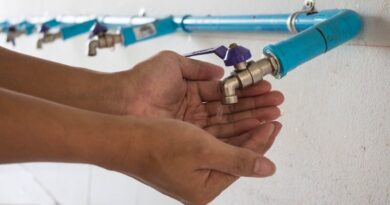M&M, Tech Mahindra among 34 companies making global debut on CDP’s water security A-list

Mahindra & Mahindra and group company Tech Mahindra are among the 34 companies, including behemoths like GlaxoSmithKline, Hewlett Packard, Microsoft, Toyota Industries and Colgate Palmolive, to make a debut in the ‘A List’ for ‘Water Security’ in Carbon Disclosure Project’s annual survey of companies’ environmental responsibility track record.
Overall, there were 106 corporates that were termed achievers in the category of ‘water security’ in, what is now, an annual reporting platform that provides the investor community with the most complete source of self-reported corporate environmental data, in a consistent and comparable manner and fully aligned with the Task Force for Climate-Related Financial Disclosures’ (TCFD) recommendations. Over 6,500 of the world’s largest companies are annually requested to disclose to the capital markets on their impact and management of climate change, forests and water security. In 2019 over 2,500 companies disclosed, while 4,000 did not submit the requested information.
While the two Mahindra group companies were rated A-level achievers, there were several others from India, including some regulars. Two companies got a score of A-: Dr Reddy’s Laboratories and Ambuja Cements while those who got a ‘B’ score were ITC Limited, Arvind Ltd, Adani Ports & Special Economic Zone, Godrej Industries, Hindustan Zinc, Marico, Tata Chemicals and Tata Steel. Dabur India, Indian Hotels Co Ltd, Piramal Enterprises and Jubilant Life Sciences Ltd got a B- score.
“….it was so encouraging to see that Indian companies had the highest response rate in the NDC on water security, with 50 per cent of engaged companies submitting a response on this critical issue – 2.8 times higher than their control group peers. It is great to now see 29 Indian companies, such as NTPC, Tata Power and Ultratech Cement, disclosing on CDP’s water security questionnaire, up from only 15 two years ago. However, there are still 59 Indian companies not yet capitalizing on the disclosure framework. In a world that is experiencing greater water insecurity, an understanding of the pressure points will be vital for companies to ensure their long-term survival”, the CDP report noted.
CDP’s work with water security encourages companies to disclose and reduce their environmental impacts by using the power of investors and customers. The data CDP collects helps influential decision makers to reduce risk, capitalize on opportunities and drive action towards a more sustainable world.
Whilst many companies produce their own sustainability reports, they are often too high level, lacking in metrics and comparability for investors to make a proper assessment of a company’s trajectory to a low-carbon, water-secure future. Reporting through CDP allows gaps in disclosure to be more easily identified, by both investors and companies, the non-government organisation said.
Out of the 1,025 companies engaged in the campaign in 2020, 206 submitted responses to their targeted questionnaires – 156 for climate change, 20 for forests and 43 for water security. These companies represent $2.7 trillion in market capitalization (roughly three per cent of global market cap) and include names such as Enbridge (climate change), Nestlé (forests) and Richemont (water security).
Of the 1,025 companies engaged, 839 were requested to respond to CDP’s climate change questionnaire, 148 on forests and 219 on water security. This represents over a quarter of all non-disclosers – 27 per cent of climate change, 16 per cent of forests and 30 per cent of water security.
CDP said in 2020, 108 institutional investors from 24 countries, representing $12 trillion in assets, signed up to this campaign and selected to engage 1,025 companies on CDP disclosure. These companies, based across 49 countries, represent $21 trillion in market capitalization and almost $billion tCO2e in emissions. This is a 23 per cent increase in participating investors and a 59 per cent increase in the number of companies they engaged from 2019.
“It’s hugely encouraging to see the number of companies achieving an A for water growing from 72 last year to over 100 this year. We have also seen a record number of companies disclosing their water data through CDP in 2020. This progress is refreshing, especially in such a challenging year marked by COVID-19. Yet the water crisis is more urgent than ever – we are facing a 40 Percent shortfall in clean water supplies by 2030 if we don’t change course, and we have seen a collapse in freshwater biodiversity. Clean water is the lifeblood of the economy and society and must be protected. We need all companies to follow the lead of the A List”, said CDP’s Global Director of Water Security Cate Lamb.
The 34 companies to debut in this year’s ‘A List’ for ‘Water Security’ are: FUJI OIL HOLDINGS INC; TDK Corporation; Toyota Industries Corporation; Nabtesco Corporation; Sumitomo Chemical Co Ltd; Kering; Kia Motors Corp; Formosa Petrochemical; SANOFI; Formosa Taffeta Co; Mars; Fast Retailing Co Ltd; FUJIFILM Holdings Corporation; Swire Coca-Cola Limited; Delta Electronics, Inc.; GEA Group AG; SEKISUI; CHEMICAL CO LTD; Microsoft Corporation; TEKFEN HOLDING A.S.; Flex Ltd; GlaxoSmithKline; Komatsu Ltd; Caesars Entertainment; Endesa; LG Display; Schnitzer Steel Industries Inc; Taiwan Semiconductor Manufacturing; ASE Technology Holding Co Ltd; Swire Pacific; Intel Corporation; Canon Inc; Samsung Electronics; Mahindra & Mahindra; Marfrig Global Foods S/A; Formosa Chemicals & Fibre Corporation; Metsä Board Corporation; Tech Mahindra; Gold Fields Limited; Colgate Palmolive Company; Nan Ya Plastics; Seiko Epson Corporation; Electrolux; Hewlett Packard Enterprise Company and PTT Global Chemical.
While there has been a big increase in the ‘A List’ this year, it still only represents a minority of companies. Most (74 per cent) of companies scored by CDP achieved D-C scores, meaning they are only just starting their environmental journey and becoming aware of how environmental issues impact their business.
Even more concerning, 3,700+ companies failed to disclose any data when requested by investors or customers, and over three times this many received an ‘F’ for at least one theme. These companies are expected to face increasing pressure to demonstrate they are taking environmental risks seriously.
“Food and beverage processing companies engaged in the NDC (Non-Disclosure Campaign) not only had one of the highest response rates but also the largest factor difference – disclosing at a rate 4.5 times higher than the control group. For a sector where water is obviously such a vital input for its business it is great to now see companies like Monster Beverages and Pernod Ricard disclosing to their investors on their management of it. The non-water inputs for beverages (such as sugar, oranges, wheat, barley, or tea) are supplied by the agricultural industry, which is the biggest consumer of water. Therefore, supplier engagement and collaboration is also key for companies in this sector to reduce their water footprint in the value chain”, the report noted.


